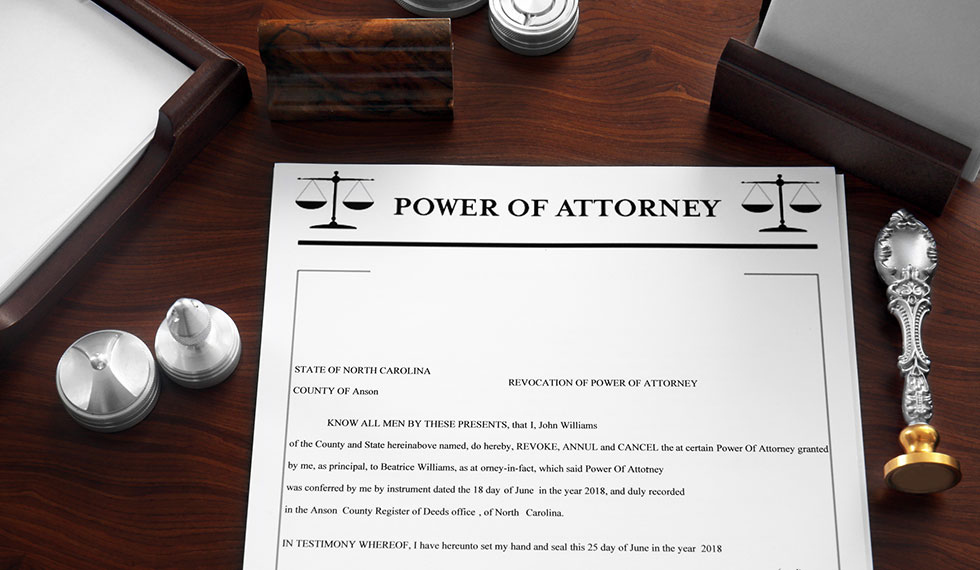A Power of Attorney (POA) is a legal document created by an individual (donor) to give another person (donee) the power to act on his or her behalf.
Therefore, in this relationship, there are two main actors:
- Donor: An individual who creates the POA;
- Donee: An individual who acquires the powers stated in the POA.
Why create a Power of Attorney?
A Power of Attorney (POA) is a useful instrument, especially to individuals who spend a lot of time abroad and for those not present in Singapore. This is because the donor, or the person creating the document, cannot personally manage legal affairs such as selling, purchasing, or renting out property.
Types of Power of Attorney
There are five types of POAs, each with different functions:
General Power of Attorney
The general POA empowers the donee to act on behalf of the donor in all circumstances, but can also limit the power of the donee in certain areas. The general POA entrusts the donee with numerous capabilities. This includes opening the bank’s safety deposit box, selling, renting out or buying property, entering into a contract for the donor, filing tax returns, collecting debts, etc.
A general POA becomes revocable when the following situations occur:
- The donor revokes himself or herself;
- The donor becomes incapacitated;
- The donor passes away; and
- When a specific event(s) stated in the POA occurs.
Non-Durable Power of Attorney / Specific Power of Attorney
A donor will use a Non-Durable Power of Attorney to empower the donee to act on his or her behalf for specific matters. The donee, therefore, only has authority in those specified areas.
Similar to the general POA, a specific, non-Durable POA becomes revocable in the following situations:
- The donor revokes it himself or herself;
- The donor passes away;
- The donor becomes incapacitated; or
- A specific event(s) stated in the POA occurs.
Lasting Power of Attorney (LPA)
An LPA authorises one or more persons, the donee(s), to maintain the donor’s affairs in case the donor loses mental capacity. The donee is authorised to decide on the donor’s behalf in matters regarding personal welfare, property, and finance.
This legal document can eliminate any stress or burden that the donor’s family may suffer from. A Lasting Power of Attorney can lower the family’s pressure and costs, since applying for a court order may cost them anywhere from $5,000 to $10,000 in legal fees. It also helps prevent any potential disputes within the family about who should be making decisions on the donor’s behalf.
When it comes to the LPA, the Mental Capacity Act applies.
It is compulsory to fill up an LPA form and have it certified to make it valid. This ensures the donor understands the purpose and consequences of the LPA. It also ensures that there is no fraud, coercion, or undue pressure or influence.
Persons who can certify the LPA include practicing lawyers, psychiatrists, or accredited medical doctors.
Housing and Development Board POA
In Singapore, the most common type of POA is the Housing and Development Board (HDB) POA.
An HDB POA is needed when a house buyer cannot attend the appointment to collect his or her keys. An HDB POA is also necessary if the buyer is unable to participate in the signing of legal documents such as the Sales and Lease Agreement, Option-to-Purchase, Deed of Assignment, Lease-in-Escrow, and Mortgage-in-Escrow.
The HDB POA is typically needed when a homebuyer lives abroad and therefore cannot physically sign legal documents in Singapore. As such, an HDB POA states the lawyer’s authority to sell, execute documents, or refund money to the CPF Board.
Conditional or Springing Power of Attorney
A Conditional POA, as its name suggests, only activates when a specific event or condition takes place. For instance, this type of POA only activates when a donor travels abroad. In the donor’s absence, the donee may act on his or her behalf. The donee does not have the power to act for him or her for as long as the donor is in Singapore.
Can I create a POA by myself?
Creating a POA involves complex procedures and requires a good knowledge of the law, and so it would be best to seek assistance from an experienced lawyer. Your legal expert can advise you, help you draft the POA, and answer any questions you may have before you sign a Power of Attorney.

